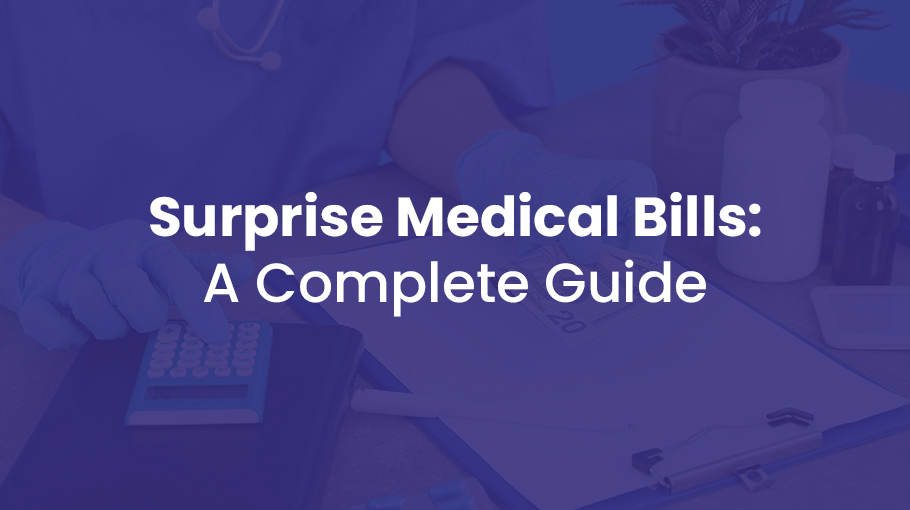Navigating the healthcare system can be complex, and one of the most frustrating aspects is receiving an unexpected medical bill. These surprise bills often arise from care provided by out-of-network professionals or services not fully covered by your insurance. To avoid these financial shocks, it’s essential to proactively prepare, understand your rights, and effectively manage any disputes. Here’s a detailed guide to protect yourself from surprise medical bills.
1. Understand Your Insurance Plan Thoroughly
A clear understanding of your insurance coverage is your first line of defense against surprise medical bills.
- Review Coverage Details: Familiarize yourself with your policy’s terms, including covered services, deductibles, co-pays, and out-of-pocket maximums.
- Identify In-Network Providers: Confirm which hospitals, clinics, and providers are part of your insurance network. Keep an eye out for exclusions or limitations.
- Emergency Coverage Awareness: Understand how emergency services are covered, especially if treated at an out-of-network facility.
2. Plan Ahead for Non-Emergency Procedures
When scheduling non-emergency procedures, take these precautions:
- Verify Provider Network Status: Contact your insurance company to confirm that all providers involved, such as specialists or anesthesiologists, are in-network.
- Request Cost Estimates: Ask your healthcare provider for a breakdown of anticipated costs, including out-of-pocket expenses.
- Pre-Authorization: Some procedures require prior approval from your insurer. Ensure this step is completed to avoid denied claims.
3. Use In-Network Providers Whenever Possible
In-network providers have agreed to specific rates with your insurer, which can save you significant money.
- Double-Check Network Status: Even if a provider claims to be in-network, confirm with your insurer to avoid any misunderstandings.
- Be Cautious About Hidden Costs: Ensure that all professionals involved, such as lab technicians or radiologists, are in-network—even when treated at an in-network facility.

4. Know Your Rights
Many laws aim to protect patients from surprise medical bills. For instance, in the U.S., the No Surprises Act prohibits certain out-of-network charges for emergency services.
- Understand Legal Protections: Research both federal and state laws applicable to your situation.
- Report Violations: If you believe a bill violates your legal protections, contact your insurance provider or the relevant regulatory authority.
5. Address Billing Errors Immediately
Errors in medical billing are common and can result in inflated charges.
- Request an Itemized Bill: Obtain a detailed breakdown of charges to identify discrepancies.
- Thoroughly Review Charges: Look for duplicate charges, incorrect billing codes, or services you didn’t receive.
- Dispute Errors Quickly: Contact the billing department and your insurer to resolve inaccuracies promptly.
6. Handle Out-of-Network Emergencies Strategically
In emergencies, you might have little control over where you’re treated. However, there are steps you can take:
- Communicate Your Coverage: Inform the facility about your insurance and request to be treated by in-network providers when possible.
- Follow Up Post-Treatment: If you receive a surprise bill, contact your insurer to explore options for reduction or negotiation under emergency coverage rules.
7. Negotiate and Seek Financial Assistance
If you receive a surprise bill, you may have room to negotiate.
- Negotiate Directly: Providers may reduce charges or offer a payment plan.
- Request Discounts: Many providers offer discounts for upfront payments or financial hardships.
- Explore Assistance Programs: Check for hospital financial assistance or charitable programs that can help cover medical expenses.
8. Utilize Mediation or Arbitration
When direct negotiations fail, formal dispute resolution options can help.
- Request Mediation: Some states allow patients to mediate surprise bills that exceed a certain threshold.
- Opt for Arbitration: Arbitration involves a neutral party who determines a fair resolution.
9. Stay Educated and Proactive
Healthcare policies and regulations are continually changing. Stay informed by:
- Updating Your Knowledge: Regularly review updates to laws and insurance policies.
- Accessing Educational Resources: Attend workshops or webinars on healthcare costs and patient rights.
10. Consider Supplemental Coverage
Additional insurance can help bridge gaps in your primary coverage, especially for high-deductible plans.
- Gap Insurance: Covers expenses like out-of-network charges not covered by your primary insurance.
- Health Savings Account (HSA): Use pre-tax dollars to save for medical expenses, reducing your financial burden.
Conclusion
Surprise medical bills can be overwhelming, but proactive measures can help you avoid or minimize them. Understanding your insurance, planning ahead, and knowing your rights are key to managing unexpected medical expenses. With preparation and vigilance, you can navigate the healthcare system more confidently and maintain financial peace of mind. Stay tuned with us!




